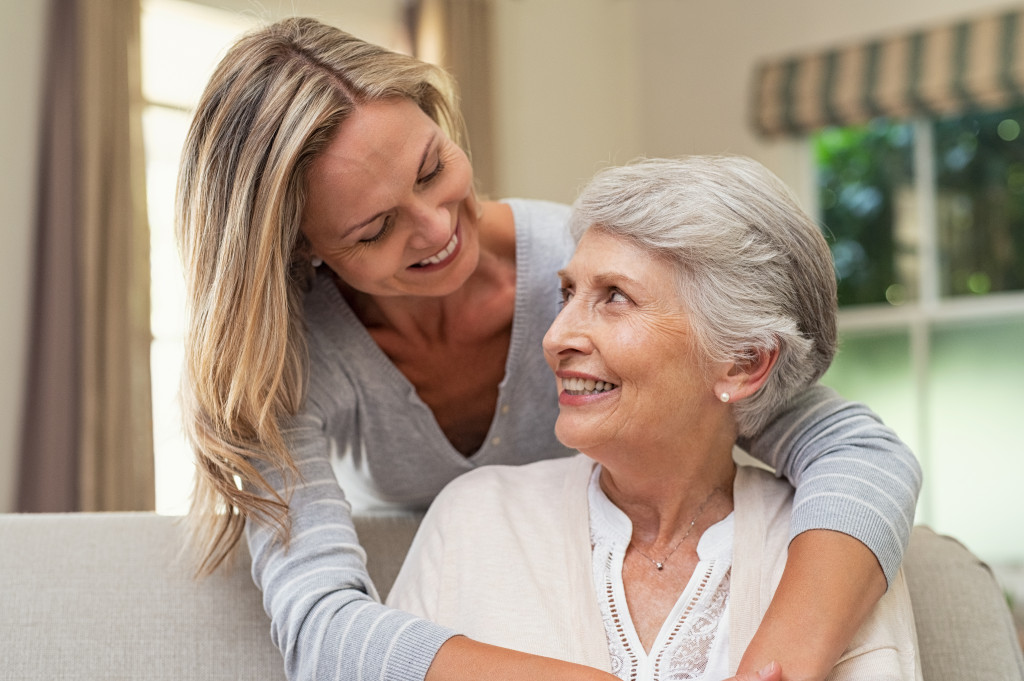- Creating a safe and accessible living environment is crucial for caring for senior family members.
- Regular check-ups, a healthy diet, and exercise are necessary to maintain their health and wellness.
- Encouraging social interaction and mental stimulation can enhance their mental well-being.
- Respect your loved one’s preferences and promote independence to boost their self-esteem.
- Consider additional support options, such as a professional home hospice, for specialized care tailored to their needs.
Caring for senior family members requires compassion, understanding, and dedication to their overall well-being. As your loved ones age, their needs may evolve, necessitating a thoughtful approach to ensure their physical, emotional, and mental health are prioritized. Below are five tips designed to help you care for your senior family members in a manner that enriches their lives and ensures they feel valued.
1. Ensure a Safe and Accessible Living Environment
Creating a safe and accessible environment for your elderly loved ones is crucial. This is because as they age, their mobility may become limited and they may be more prone to accidents.
Here are some tips to ensure a safe and accessible living environment:
Modification of Living Space
Modifying the living space is essential for the safety and well-being of your elderly loved ones. Some necessary changes that can be made include installing grab bars in the bathroom and near areas prone to slipping, such as stairs or doorways. Removing tripping hazards like loose rugs, cords, or clutter can also prevent falls. Consider using non-slip mats and adding handrails on both sides of the stairs for extra security.
Rearrangement of Living Space

In addition to modifications, rearranging the living space can make a significant difference in accessibility for your elderly loved ones. Keep frequently used items at arm’s length and within easy reach, such as medication, glasses, and telephone. Consider using shelves or pull-out drawers to organize items and avoid bending down or reaching high.
Consider Assistive Devices
Assistive devices can greatly enhance your elderly loved one’s safety and accessibility at home. These can include mobility aids like walkers or wheelchairs, as well as specialized equipment for daily tasks like reaching high shelves or opening jars. Consult with a healthcare professional for recommendations on the best assistive devices for your loved ones’ specific needs.
Ongoing Maintenance and Regular Checks
Ensuring a safe and accessible living environment requires ongoing maintenance and regular checks. Check for hazards or wear and tear in the living space, such as loose handrails or cracked floors. Make necessary repairs or replacements promptly to avoid accidents.
2. Prioritize Health and Wellness
Maintaining the health and wellness of your senior family members involves regular check-ups and adhering to any prescribed medications and treatments. Staying proactive in managing their health can prevent complications and enhance their quality of life.
Encourage a healthy diet and regular exercise within their capability. Walking, gentle yoga, or seated exercises can positively affect their physical well-being.
3. Encourage Social Interaction and Mental Stimulation

Social interaction is vital for mental health. Encourage your senior family members to maintain connections with friends and family and to participate in social gatherings whenever possible.
Engage them in mentally stimulating activities such as puzzles, reading, or crafts. Mental engagement can help keep their cognitive functions sharp and provide a sense of accomplishment and purpose.
4. Promote Independence and Respect Preferences
Allow your senior family members to maintain as much independence as possible while ensuring their safety. This can involve respecting their preferences in daily activities, meals, and leisure time.
Recognize and acknowledge their experiences, listening to their stories and opinions. This respect for their autonomy can significantly enhance their self-esteem and emotional well-being.
5. Consider Additional Support and Comfort Measures
When the health of your senior loved ones starts to decline, you may need to explore additional support options. This is where a professional home hospice can come into play, providing specialized care tailored to their needs.
A professional home hospice can offer comfort, medical attention, and emotional support not only to the seniors but also to the entire family. This thoughtful decision ensures that your loved ones receive dignified care in the comfort of their home during challenging times.
Final Words
Caring for senior family members is an enriching experience that comes with its own set of challenges. By ensuring a safe environment, prioritizing health, encouraging social interaction, promoting independence, and considering additional support such as a professional home hospice, you can create a caring and supportive atmosphere for your loved ones. These steps collectively enhance the quality of life for your senior family members, ensuring they feel valued and cared for at all times.




